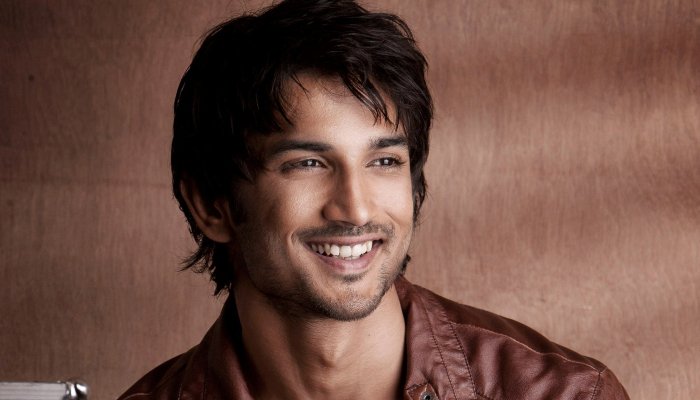A few years ago I saw a picture of Sushant Singh Rajput at an event and it was a bright, shiny event. It’s etched in my memory because Sushant is smiling through it (as he is in most of his pictures) and it was his characteristic shy smile. Something that had captured the imaginations of many after his performance in Shudh Desi Romance. Sushant played Raghuram, a commitment-phobe who runs away from love even when he doesn’t need to.
Different people remember different things when a celebrity passes on. Some remember their performances, some remember it in their own connection (where they were when they heard the news, what they did after they heard the news). But these days, almost all of us will pour our heart out on social media because it’s easy to do this and it helps us connect to a shared experience. The death of a well-known celebrity creates a bigger connect – because these well-known people have impacted a large group of people who are now rehashing their memories.
However, when it comes to the tragic death of Sushant Singh Rajput, a bright young actor with much critical acclaim to his stardom, the conversations should be hitting differently. Unlike other tragic deaths, no less tragic and no less impactful, Sushant’s passing on should evoke something much larger in the film fraternity and those who consume the content, produced by this fraternity, by the second.
Death, by definition, is a stark reminder of life as we know it. What are we taking for granted and what are we emphasizing our energies on. With Sushant’s untimely demise, some of the questions that are surfacing were perhaps long time coming.
Nepotism is the first one. And unlike Kangana Ranaut, whose legitimate position about Karan Johar as the flag-bearer of nepotism has been called into question by her heavy-handed views against the Muslim minorities in India, this tragic incident has sparked a conversation about how Bollywood works when it comes to star kids and how it doesn’t really work for people who don’t have the privilege or the support of a ‘big star’ or a lot of money.
Sushant belonged to Patna, a small city in India, and he had little to charm and wow big studio magnates other than his talent. He started acting in television serials in 2008 and his first film, Kai Po Che (2013), had come after many years of his struggle in the Indian entertainment business. Sushant’s recent most film Drive, produced by Karan Johar himself, didn’t do well at all. But his other film, directed by Nitesh Tiwari, Chhichhore, met with critical acclaim.
The second one is mental health. We don’t talk about it. We don’t want to talk about it. When someone is ‘depressed’, we don’t think it’s a cause for concern. It’s especially forsaken in the celebrity world because of their crazy lifestyles. But the root of the stigma lies in the ‘normal’ social strata that don’t allow real enough conversations about mental health. Some think depression is ‘cured’ by marriage or by money, fame, success. But depression has biological reasons. It is triggered by events in your life and it doesn’t just stop because you have a spouse. It requires care and attention, it is a medical and psychological condition. And Bollywood films, while gradually giving due attention to the cause, really don’t understand it well. Or the filmmakers may be privately aware of the importance of mental health but are unable to communicate it to an audience who doesn’t understand. It’s limited to films like Dear Zindagi and even in Sushant’s own film Chhichhore the conversation around mental health was fairly light (DZ) and irresponsible (Chhichhore).
The third one is how social media and PR today has turned into an ugly tool for warfare. Sushant was accused of sexual harassment via an agenda; he tweeted soon after the controversy broke out in a report in a leading daily in India. He had to post screenshots of his conversation with his costar but the damage was already done. The label of him being a ‘sleaze’ was already making rounds.
It’s that easy to malign or shame someone on social media. It doesn’t matter what they’ve done in their real lives or what they believe in or if sometimes don’t know how to pick the right words. Once an attack begins on social media, no one can stop it. It’s an avalanche.
Sushant had been suffering from depression in the past six months, said reports. We don’t know what was the last straw, we don’t know what made him finally take his life. But what is certain that Bollywood’s culture needs to evolve and there need to be better conversations around mental health. Sushant Singh Rajput was an outsider, someone who wasn’t going to be forgiven or called back into the inner sanctums of Bollywood elite if he messed up or if his films flopped. As opposed to other actors who continue to be represented by high-end firms and corporations just because of a surname.
Given the nature of the beast of Bollywood, I doubt that anything would change. Even though it is consuming young talented people who could have had a fighting chance if the situations were slightly more conducive, Bollywood culture will continue to remain the way it is (unless Karan Johar and many like him decide a change is inevitable). Even though it destroys lives, there will be cliques who will continue to bully and tear people down. Even though depression kills over 800 000 people through suicide each year with over 264 million people affected, we still aren’t ready for real conversations around mental health. And until we’re ready to ask all these questions, all our condolences and our empty words will remain what they are – empty words.
